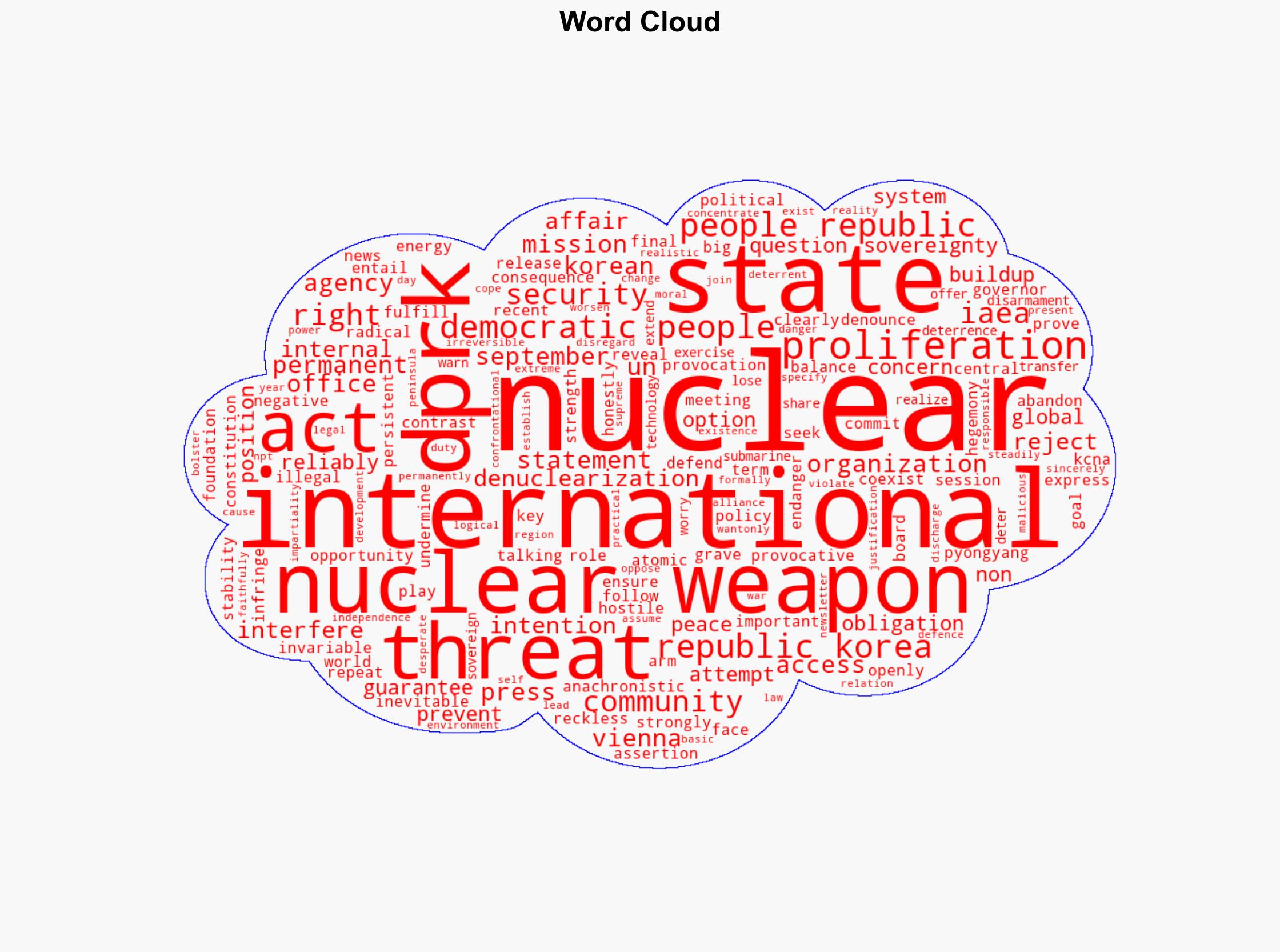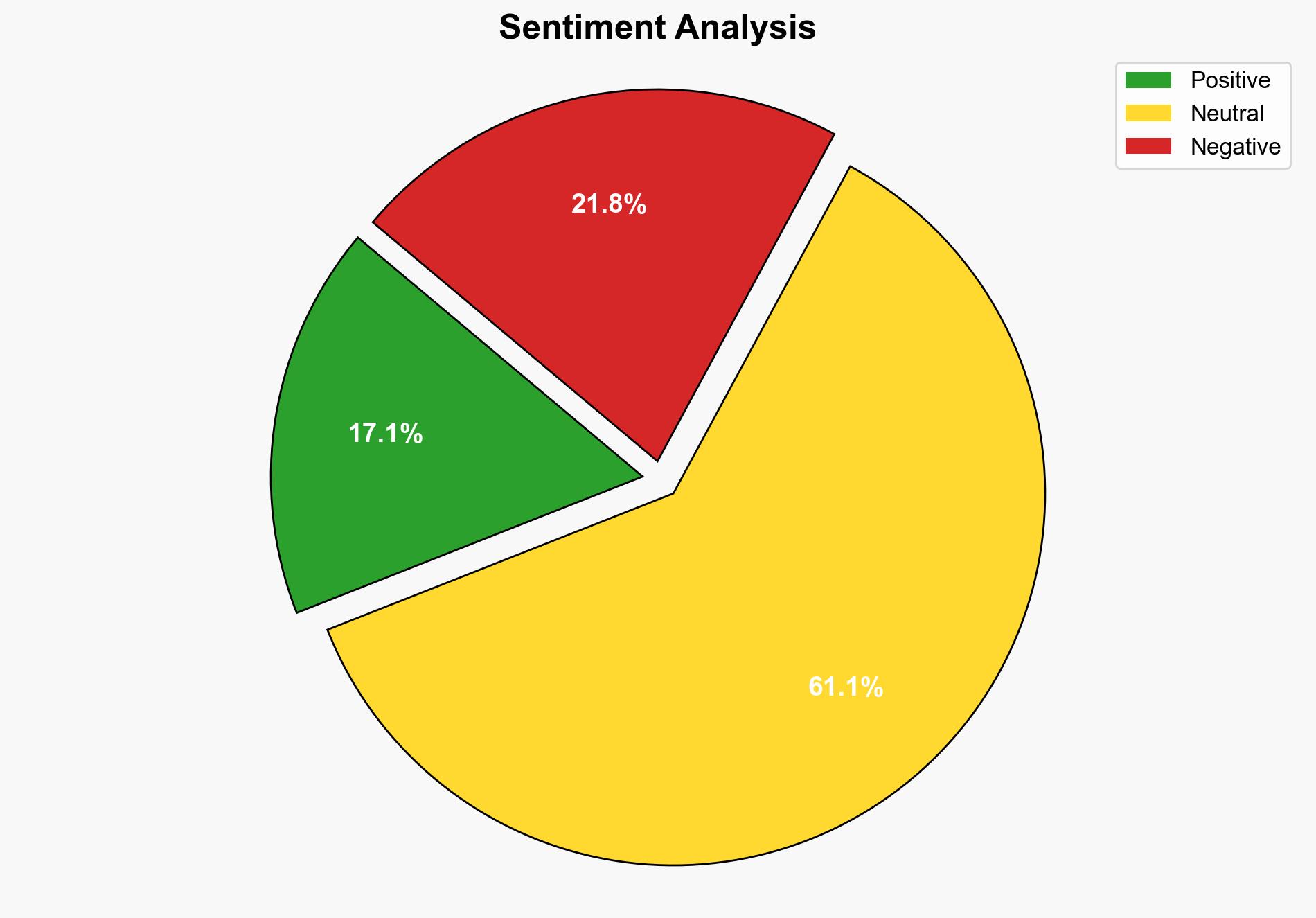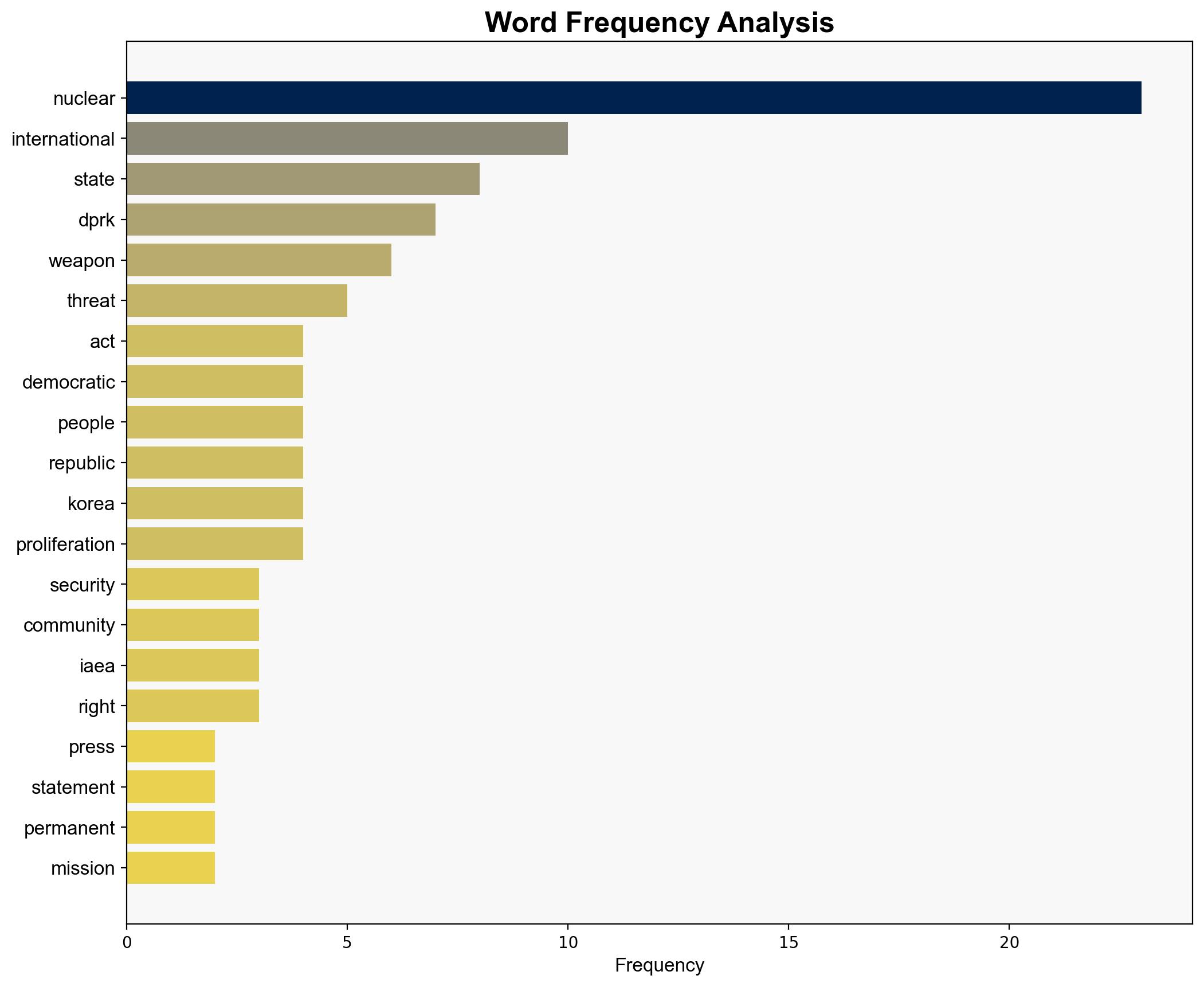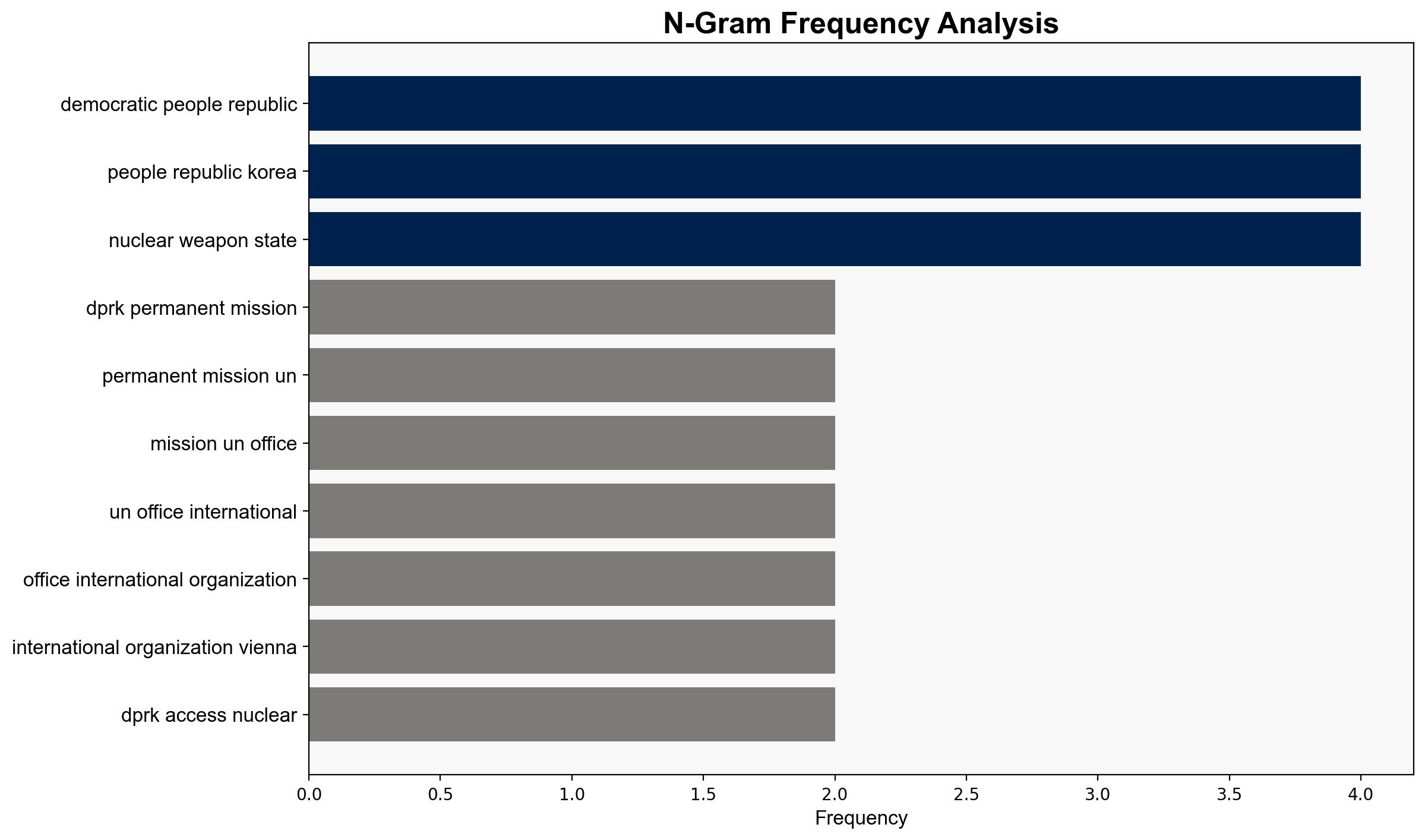Press Statement of DPRK Permanent Mission to UN Office and International Organizations in Vienna – Globalsecurity.org
Published on: 2025-09-15
Intelligence Report: Press Statement of DPRK Permanent Mission to UN Office and International Organizations in Vienna – Globalsecurity.org
1. BLUF (Bottom Line Up Front)
The Democratic People’s Republic of Korea (DPRK) is reinforcing its stance on maintaining its nuclear arsenal as a sovereign right, rejecting international pressure for denuclearization. The most supported hypothesis is that DPRK’s statement aims to solidify its position as a nuclear state while deterring international intervention. Confidence level: Moderate. Recommended action: Engage in multilateral diplomatic efforts to address DPRK’s security concerns while reinforcing non-proliferation norms.
2. Competing Hypotheses
Hypothesis 1: The DPRK’s statement is a strategic move to assert its nuclear status and deter international interference, particularly from the IAEA and nuclear-armed states. This hypothesis suggests that DPRK is using its nuclear capabilities as a bargaining chip to negotiate security guarantees and economic concessions.
Hypothesis 2: The statement is primarily domestic propaganda aimed at consolidating internal support by portraying the DPRK as a strong, independent state capable of resisting foreign pressure. This hypothesis implies that the international rhetoric is secondary to maintaining internal regime stability.
3. Key Assumptions and Red Flags
Assumptions:
– Hypothesis 1 assumes that DPRK’s leadership is rational and seeks to leverage its nuclear status for strategic gains.
– Hypothesis 2 assumes that internal stability is the primary concern for DPRK’s leadership.
Red Flags:
– The statement’s aggressive tone may indicate potential misinterpretation or escalation risks.
– Lack of direct engagement or response from other key international players could lead to miscalculations.
4. Implications and Strategic Risks
The DPRK’s firm stance on its nuclear program could lead to increased regional tensions, particularly with South Korea and Japan. There is a risk of further nuclear proliferation if DPRK’s position encourages other states to pursue similar capabilities. Additionally, the statement could undermine international non-proliferation efforts and lead to a destabilizing arms race in the region.
5. Recommendations and Outlook
- Engage in diplomatic dialogue with DPRK to address its security concerns and explore potential incentives for denuclearization.
- Strengthen regional security alliances to deter potential aggression and reassure allies.
- Scenario Projections:
- Best Case: DPRK agrees to freeze its nuclear program in exchange for economic aid and security guarantees.
- Worst Case: Escalation of military tensions leading to regional conflict.
- Most Likely: Continued stalemate with periodic diplomatic engagements.
6. Key Individuals and Entities
No specific individuals are mentioned in the source text. The DPRK Permanent Mission to the UN Office and International Organizations in Vienna is the primary entity involved.
7. Thematic Tags
national security threats, nuclear proliferation, regional stability, diplomatic strategy




